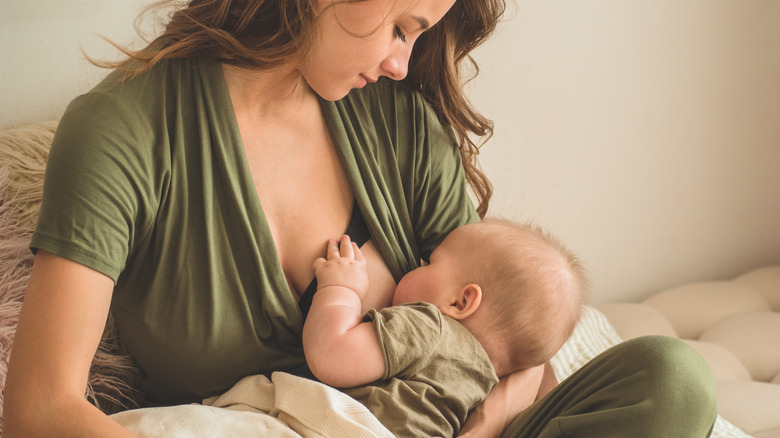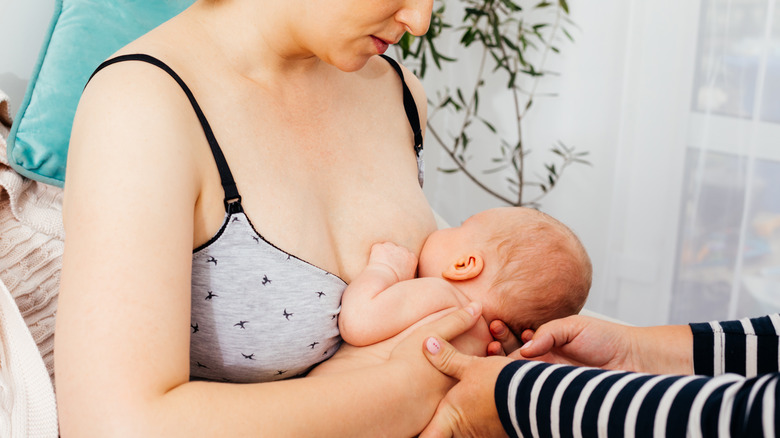What Happens When You Get Pregnant While Breastfeeding?
Many people consider breastfeeding to be a form of birth control. It is true that if you breastfeed exclusively at least once every 4 hours during the day and at least once every 6 hours at night, you will likely be protected from pregnancy for about 6 months. This method is about as effective (98%) as the pill, but breastfeeding won't prevent pregnancy if you use a breast pump or feed your baby with formula, in addition to breastmilk. Even exclusive breastfeeding becomes much less effective at preventing pregnancy after your period returns, according to Planned Parenthood. This is why this method is called "lactational amenorrhea" ("amenorrhea" referring to the absence of your period).
That being said, getting pregnant while breastfeeding is not impossible, especially if you pump, supplement your baby's diet with formula or solids, or have gotten your period. Interestingly, a clinical trial published in Contraception found that people who go back to work while using the lactational amenorrhea method are more likely to get pregnant again than people who stay home with their babies. What if this turns out to be you?
What to know if you get pregnant while breastfeeding
Generally speaking, breastfeeding will not interfere with your pregnancy or vice versa. Some people express concern that the oxytocin released during breastfeeding may cause them to go into preterm labor, but this is unlikely, as breastfeeding does not release enough of it to induce labor. However, the American Pregnancy Association (APA) does advise talking to your doctor about whether you should continue breastfeeding if you have a high-risk pregnancy, are carrying twins, have been advised to avoid sex during pregnancy, or are experiencing bleeding or uterine pain.
Lactation consultant Anita Arora tells Today's Parent that your nipples may feel more tender than usual if you breastfeed while pregnant and you may start to produce less milk. If you have a healthy singleton pregnancy, your biggest concern is making sure you get enough calories to feed both your baby and unborn child. On top of the 500 extra calories you need during breastfeeding, you will need another 350 calories during your second trimester and 450 extra calories during your third trimester, according to the APA. No extra calories are necessary during your first trimester, which may be good news if you struggle with nausea.


